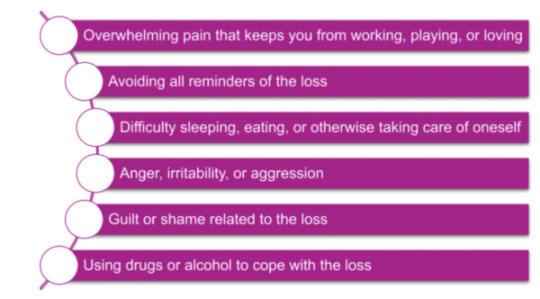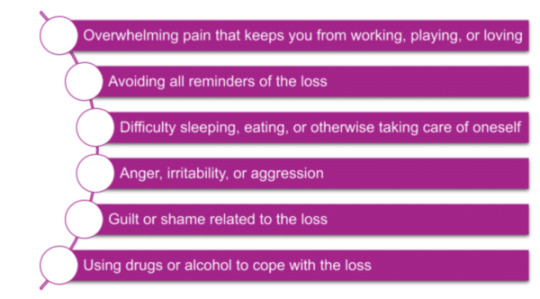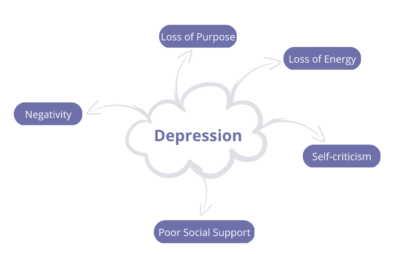Text
Myth Busting- Common Misconceptions about Online Therapy

Since the pandemic, mental health services have become even more accessible through the wider use of virtual therapy. But many people have misconceptions about online therapy. Let’s go through these myths one by one and address some of the questions you may have about receiving therapy online.
1. Myth: Insurance will not cover virtual therapy.
Whereas this may have been true in the past, today most insurance providers cover virtual therapy. Always confirm with your insurance provider. The cost of in-person therapy is the same as the cost of virtual therapy.
Learn more about using insurance to pay for therapy by watching this quick video.
2. Myth: Virtual therapy is less effective than in-person therapy.
Although attending therapy virtually vs. in-person provides a different experience, the quality and effectiveness is not compromised. You will still be meeting with a highly trained and experienced psychotherapist. You are the same person receiving the therapy, and the therapist is the same person providing the therapy; thus your experience will not be diminished.
3. Myth: My confidentiality will not be protected through online therapy.
While it is true that a therapy office can provide a unique amount of confidentiality, most therapists use secure networks and platforms to meet their clients virtually, where your privacy and anonymity will be 100% protected, and your private information will be kept hidden. Additionally, most therapists have designated private work spaces in their homes and take extra measures to ensure that privacy is kept.
4. Myth: Online Therapy is only for minor issues, and would not apply to higher risk clients.
This is not always true. Many of the clients that we see virtually can be higher risk or experiencing suicidal ideation, or may self-harm. Extra measures will be taken to keep the client safe and protected. Those measures include creating and following a safety plan, treatment coordination with other providers (i.e. psychiatrist, physician), and frequent follow-ups and check-ins. If what you are presenting with is more appropriate for in-person sessions the therapist will communicate that and help connect you with resources.
5. Myth: I won’t be able to connect with my online therapist the same way I would be able to connect in-person.
This is an understandable concern, as therapy is extremely relational and functions off of the basis that you will form a deep connection with your therapist. That relationship is still possible virtually. Your therapist will show up as present, connected, and caring– regardless of the medium. The pandemic has proven to us that one can still experience the power and benefit of therapy from the comfort of their home.
Interested in exploring virtual therapy? Contact us today for a free consultation.
Want to learn more about teletherapy? Read our blog, “Teletherapy: Common Questions Answered“.
0 notes
Text
4 Ways to Put the Fun Back in Dysfunctional Holiday Gatherings

Over the river and through the woods to grandmother’s house we go! But if that idea fills you with dread or anxiety, it doesn’t exactly make you look forward to the holidays. Keep reading for strategies for navigating the holidays with family successfully and more important, sanely.
What Came Before
Before we dive into the strategies, you should take a look at how you’ve gotten to this point. While you can spend time reading self-helps books and blogs, going to therapy, working on being more assertive…..one comment from a “well-meaning” relative can derail your holiday. As you’re eating a delicious holiday dinner, if Mom whispers, “Don’t you think you’ve had enough?” it can completely throw your self-control out the window. Knowing those triggers and being prepared to respond can be key to surviving family gatherings. And not only surviving, but actually being able to love your family in a healthy way and maintain your sanity (we promise, it’s possible to do both!). Here are four strategies for making it to January.
Boundaries
Before the shenanigans begin, decide how much time is enough. Would you be stoked to see the fam for 3 hours but not 4? Plan it that way then! Maybe that means not riding with anyone over the river and through the woods, so you can make your own escape. That can also mean planning to have a friend call you to provide a plausible excuse for hitting the road. With a little planning, you can make the family happy and make a clean getaway.
Control
You won’t ever change someone else. From your mom to your significant other, you can’t make someone else be who they aren’t. The only thing you can control is your reaction to their behaviors. Remembering that can be key to weathering the storm of, “So when are you getting married?” or “Grandma isn’t getting any younger, how about some grandkids?”. If you’ve got a few planned responses, it can reduce the sting of those comments.
Expectations
Our expectations can hold us hostage when they’re set unreasonably high. If your friends have picture-perfect families and you hope/expect that suddenly yours will behave like that this year, you’re setting yourself up for disappointment. Instead, try lowering that bar a little bit. That doesn’t mean you’re condoning your cousin’s drunken ramblings or grandpa’s racism, but rather you’re acknowledging that there’s nothing you can do to change it. And by doing that, you’re not allowing it to control you.
Talk it Through
Make sure you’ve got someone to talk through your holiday fan-damily fun with. That can be your best friend, a trusted mentor or a therapist. But make sure you do it! Once the dust settles after New Year’s Eve, take some time to decompress and debrief with someone who gets you and supports you. Sometimes saying things out loud helps you sort through those thoughts and feelings more effectively. Process them and move on. There’s a whole new year of exciting possibilities waiting for you, don’t start it off on the wrong (mental) foot.
The Bottom Line
Don’t forget your own well-being this holiday season, either. The parties, the gift giving and the family gatherings can leave you running on fumes. With a little planning and thought, it’s possible to get your new year started off right instead of feeling exhausted and stressed. If you’re struggling with that, we can lend a hand this holiday, too. Call or text us today.
0 notes
Text
Holidays Suck? 7 Ways to Cope That Aren’t Wine

We all know that “every kiss begins with Kay” and that everyone should have a significant other to spend the holiday wrapped up in a blanket with. Or at least that’s what commercials and possibly our families want us to believe. If that’s not where your life is at right now, don’t give in to despair and open a bottle of chardonnay. Here are 7 ways to deal with the holidays on your own terms.
Planning is key
Whether it’s holiday travel with a million of your closest friends in an airport, or going shopping for gifts, make sure you plan ahead. Add extra time to your travel schedule to help manage your frustration at what are likely inevitable delays. Tis the season! But that doesn’t mean you’ve got to give in to it. Even an extra 15 minutes can help.
Grab your wingwoman/man
Don’t go it alone. Even if your BFF is married or coupled up, don’t just assume she can’t go with you. Ask! If you can’t find anyone, don’t go alone if that’s too hard for you. If you have to make an appearance anyway (say, the company party), keep it short. Just because you go doesn’t mean you have to stay all night.
Don’t skimp on exercise
With the impending deluge of NYE resolutions, it might be tempting to put off exercise until next year. But moving your body not only is good for your body, but also your mind. A quick boost of endorphins can see you through the day a little happier.
Sleep!
But not too much. It might be tempting to say you’ll sleep in January, but a week or two of poor sleep habits will lower your resistance and resolve. Make sure you stick to your usual routine as much as you can.
Try volunteering
Helping someone else is a great way to get out of your own head. Find a soup kitchen or other way to give a little time back to those less fortunate this holiday season, you won’t regret it.
Lower your expectations
‘Tis also the season for massive credit card bills and overspending. Instead, have a plan – don’t rush out and buy something just because someone bought you an unexpected gift. Try limiting the family circle gift giving to the kids – most grownups don’t need more “stuff”. Remember, there are no requirements other than the ones you set, so set ones that don’t leave you buried under guilt and debt.
Acknowledge how you feel
It’s ok to feel sad or lonely or have a touch of the bah-hum bug. But don’t wallow in it. Acknowledge the feeling and then use a way to cope with it. Sad? Pop on some happy music (no one said it has to be holiday stuff, either). Lonely? Get out of the house! Or at least pick up the phone. Don’t allow “alone” to become “lonely”.
Final Thoughts
We understand, the holidays can be the toughest time of the year. The endless whirl of parties and activities can leave you mentally and physically exhausted, so it’s important to take care of yourself. If you find that things are just overwhelming, we’re here for you. Call or text us today.
0 notes
Text
How to Strengthen Relationships Amid Holiday Stress

While we may be amidst the most holly-jolly time of the year, it doesn’t mean that it’s the easiest. Cookie decorating, tree trimming, and family gatherings are only a few of the things you might be expected to show up for this holiday season. But unfortunately, for some, showing up is much more stressful than joyful.
Whether it’s some unresolved, long-standing family issue, or, every time you get the gang together, there seems to be turmoil, it doesn’t mean you have to white-knuckle it through the season. So how do you strengthen relationships amid holiday stress, or at the very least, have a pleasant experience? Practicing mindfulness, setting boundaries, and checking in emotionally, can make a world of difference.
Importance of Mindfulness During the Holiday Season
Regardless of what state your relationships are in during the holidays, the chaos (even joyful chaos) tends to strain even the best relationships. But never fear, mindfulness is a great way to combat this from the start. So, let’s start off with the most important part of practicing mindfulness–defining what it is to be mindful.
What is mindfulness?
Mental health counselor, Zainah Ben Essa, talks about mindfulness as essentially the act of fully being present in action, thought, or emotion.” She adds, “By being present in this way, you are more self-aware and can give yourself the time or space you need.”
Maintaining this level of mindfulness and awareness is especially crucial when dealing with complicated family dynamics, or people you don’t truly care to see.
How mindfulness eases stress
When you quiet your mind and focus on the moment you’re in, you physically slow down the part of your brain that controls stress levels. Olivia Verhulst, a licensed mental health counselor, reminds us of the many different benefits that come with mindfulness in addition to reducing stress. “Mindfulness encourages many other mental health benefits ranging from increasing self-awareness to improving emotional regulation, and more.”
Ways to practice mindfulness during the holiday season
Even with the hustle and bustle of the season, it’s important to make time to slow down. Sometimes when we’re bouncing from one activity to another, we forget to take time to stop and breathe. Olivia suggests an easy way to build this into your busy day. “A good place to start is with three small breathing breaks into your workday, for about three to five minutes at a time,” she says.
How to Manage Your Stress this Holiday
There are many things that you might find stressing you out this holiday season that involve your relationships with friends, family, work, and romantic partners alike. Hosting events, overscheduling your family and yourself, or trying to keep up with every single person’s demands will leave you overwhelmed.
Curbing your people-pleasing tendencies during this time of year is easier said than done. But creating and communicating boundaries, enriching connections, and putting quality time front and center will help you stress less and strengthen your relationships.
Create and communicate clear boundaries
During the holidays, and every other time of year, be clear about your boundaries in all your relationships (professional and otherwise). You’re in control of the interactions you have. “Communicating clearly leads to positive interactions, but if someone chooses not to respect them, there are consequences you can enforce,” Zainah adds.
Maybe you don’t keep speaking with them, or choose to not attend events they’re involved with, or maybe, you told your boss no, I’m not signing on for a quick meeting. Decrease your stress around the holidays by setting these boundaries. It’s up to the people you’re interacting with to abide by them.
Enrich connections
There is no such thing as a dull moment around the holiday times. There is always somewhere to be and shopping to be done. But our time and attention are some of the greatest gifts we can give to people in our lives.
Olivia speaks to this when she talks about prioritizing our relationships. After all, spending time with those who bring us joy is a great way to stave off stress. “Prioritizing our partner can look like adding intention to our quality time. Being intentional and present during your quality time with others can deepen connections . Which yes, means cutting down on other distractions like screen time, which can add to stress in itself.”
At the end of the day, managing your stress this holiday season might feel impossible. But it all starts with strengthening all the relationships in your life, including the relationship you have with yourself. Go ahead, choose yourself, and self-care this holiday season. Because when you are better grounded, your relationships are stronger for it.
Our therapists here at Let’s Talk Psychological Wellness are committed to helping you manage your stress during the holidays and throughout the rest of the year. Feel confident and secure in your relationships. Call, text, or email us.
0 notes
Text
15 Ways To Deal With A Toxic Family During The Holidays

Right now many folks are beginning the countdown to their highly-anticipated trip home for the holidays. But if you have a toxic family, visiting relatives isn’t always a joyful or relaxing experience. In fact, it can be downright distressing.
While it can be tough to get through totally unscathed, rest assured there are plenty of ways to handle toxic family members during the holidays. If you choose to go home and are hoping for the best, here are some tips to get you through the season as smoothly as possible.
1. Adjust Your Expectations
Even though it’d be nice if the season was packed with loving, cozy gatherings where everyone laughs and gets along, it may help to go into your holiday with neutral expectations. Think of it this way: “There’s no need to place additional pressure on ourselves or family members to ‘behave better’ during the holidays,” Zeng says, especially since stress runs high this time of year and can put even the most chill relative on edge. It’ll help to brace yourself, so you can be pleasantly surprised if things go well.
2. Don’t Try To Change Anyone
Before you show up with casserole in hand, remind yourself that it’s not your job to change your family. “The likelihood that your problematic relative is going to change this holiday is very low,” says Marjorie Jean, LICSW, LCSW-C, a trauma-informed therapist. They are who they are, and no dinner table chat will get through to them.
While it may sound negative, Zeng says this mental shift is all about preserving your mental well-being. If you release the idea that you need to educate family members or mediate arguments, suddenly it all seems less stressful. Instead, take deep breaths and focus on finding small moments of happiness so you can stay grounded.
3. Plan Neutral Conversation Topics
If your family’s toxicity stems from tough convos, it may help to go into the season with a mental checklist of things you’d prefer to talk about. “It can be helpful to come to gatherings prepared to divert the topic of conversation to a handful of topics that you feel comfortable discussing, or that you know won’t be so controversial among family members,” Zeng says.
The moment a family member starts talking about politics, for instance, ask if they have any fun travel plans coming up, interesting projects at work, or a fave TV show. “Be prepared to steer the conversation away to these safer topics if you find yourself in the middle of a conflict,” Zeng says.
4. Practice Redirecting Tough Convos
You can even practice redirecting problematic convos before the festivities begin. “As strange as it sounds, I encourage people to practice interrupting a conversation with a friend or partner until they feel confident about doing so when needed,” says Peggy Loo, Ph.D., NYS, a licensed psychologist and director of Manhattan Therapy Collective. “We’re often socialized not to interrupt others while they are speaking, but in the context of an unwanted or unhealthy conversation, this might mean we get stuck if we’re waiting for a natural place to jump in.”
Ask a friend to start talking about anything, and then interject with a prepared statement like, “OK, I’d like to talk about something else.” According to Loo, this trick will help you wriggle out of stressful convos so you can spare yourself the toxicity.
5. Politely Decline Pointed Questions
You can also spare yourself by declining to answer unwanted inquiries, however much a family member needles, pokes, or pries. “You can tell them you understand their interest and curiosity about something, but then firmly say that you don’t feel comfortable talking about this topic at the moment,” Zeng says. “If they persist, you can let them know you will be exiting the conversation if they continue.” Again, change the topic and stick to your boundaries.
6. Schedule Games & Activities
Does your family tend to get into an argument the moment there’s nothing better to do? If that’s the case, keep things moving by planning games or activities you can do together. “Whether it’s watching a holiday-themed movie or roasting some marshmallows, look for something that can occupy your time,” Zeng says. “It’ll reduce the opportunity for having difficult and uncomfortable conversations if everyone is engaged in an activity.”
7. Set Time Limits
While exiting a family get-together is often easier said than done, Loo suggests setting boundaries around how much time you’re willing to spend with family or in situations that may not be the healthiest and allowing yourself to leave the moment that time is up.
“This could mean that you choose to stop by a family gathering only for dessert versus an extended meal, or that you give yourself permission to take a break if you’re already spent an afternoon together,” Loo tells Bustle. “Feeling in control of your time can help you manage challenging dynamics because you know there is an endpoint, instead of feeling trapped in interactions.”
8. Check In With Yourself
Throughout the season, make it a point to check in with yourself physically and mentally to see how you’re holding up. “If your heart rate and temperature are up or you’re not thinking clearly, these can be signs to retreat and take a break from the situation,” Zeng says. “Step outside for some air, hide in the bathroom, or go to another room. This can help you check in about any boundaries or limits you may wish to set when you return to interacting.”
9. Create A Relaxing Routine
It may also help to develop a self-care practice that allows you to create some distance from your family and offer a little respite, Jean says. Think about going to the gym, getting to bed early, or taking long walks every morning before you rejoin the get-together.
Being around a toxic family is stressful, and that stress forces your body into a hyper-vigilance mode that can put you on edge and make the whole situation feel worse, Jean tells Bustle. “By setting up a self-care regimen, you are being proactive in regulating your nervous system and body through a difficult time,” she says.
10. Phone A Friend
It may help to lean on a friend — or even a therapist — before, during, and after your holiday, so ask if it’d be OK to reach out with a quick call or text. Loo recommends setting aside time to phone a friend throughout the season so you can fill them in on the details, share a few stories, and maybe bring a little levity to the situation. (Even better if you can talk to them while you go for a relaxing walk.)
11. Suggest A New Tradition
If you know that dinner at grandma’s house always goes downhill, Jean recommends creating new traditions. Invite everyone to your place for drinks, offer to reserve a table at a restaurant, or suggest meeting in the town square to look at Christmas lights. “This may be an opportunity to challenge some cultural hierarchies,” she says. It may also feel good to meet family members in a more neutral territory so those old dynamics are less likely to take over.
12. Stick With Your Allies
If you have one or two family members who aren’t toxic, try to stick by their side. “This can mean finding people at gatherings whom you like interacting with and spending more of your time and energy engaged with them,” Zeng says.
You can slice pie with your cool aunt, take a little cousin for a walk, or watch a movie with your sister-in-law in another room. “If you can, laugh and acknowledge the absurdity of these shared situations together,” Zeng adds. A quick vent may be just what you need to make it out on the other side.
13. Plan An Exit Strategy
Create an exit plan before spending time with toxic family members during the holidays.
If things have gotten so toxic in the past that you’ve actually wanted or needed to leave, then go ahead and create an exit strategy ahead of time. Figure out how you’ll excuse yourself, where else you can stay in your family’s town, or how you’ll get back home. Sketching it out beforehand can create immense peace of mind.
14. Remember It’s Only Temporary
If you notice your stress levels rising, take a deep breath and remind yourself that it’ll all be over soon. “Remember that this environment is temporary,” Zeng says, so look out at the time you have to get through — whether it’s one dinner, one day at home, or one week with guests in your house — and start counting the hours. Even though it may seem like forever, it won’t be that long before your life is back to normal.
15. Ask Yourself If You Really Have To Go In The First Place
There’s often a lot of internal and external societal pressure to spend the holidays with family, Loo says. And while it might have you convinced that you need to travel home, you should feel free to consider the alternatives, especially if you hit a point where the negatives outweigh the positives.
If you really need to step back, it might feel better to stay at your place and send a card, call from a distance via Zoom, or opt out entirely and create new seasonal traditions of your own. If you don’t want to subject yourself to any drama, Loo notes that it’s more than OK to look out for your own best interests, even if you get pushback from family.
The holidays may be a tough whirlwind of a time, but they certainly don’t have to be toxic.
To visit more blogs please, click here.
0 notes
Text
Achieving Mental Wellness: Easy Steps To Improve Your Mental Health

Working on your mental wellbeing can sometimes feel like one more thing added to your to-do list. However simple actions can go a long way toward your wellness. Here are five simple steps you can take to improve your mental health:
Physical activity and movement: Our bodies release energy and emotions when we move them; when we do so they release feel good hormones like dopamine and serotonin. Our body also has the capacity to store trauma, grief, anxiety, sadness, and other negative emotions- and thus movement can be a positive way to release those emotions. Physical activity can range from going on a walk, to exercising, to yoga, or even a solo dance party.
Journaling: Writing our thoughts down, processing our feelings on paper, and unpacking complex emotions can prove to be very helpful. Journaling can range from an in-depth exploration of our inner world, to stream of consciousness, or even gratitude journaling. A journal that has helped me stay grateful is The Five Minute Journal by Intelligent Change
Mindfulness and Meditation: You can follow guided meditations found online, or you can just connect to your breath. Mindfulness doesn’t need to be anything fancy, it can literally just mean focusing in on what you’re doing and giving it your undivided attention. An example can include a mindful walk where you are focusing on all the scents, sounds, and sensations that naturally arise.
Routine: Creating a daily and weekly routine is necessary for positive mental health outcomes. This can include sleeping and waking up at the same time everyday, getting in 8 hours of sleep, eating 3 balanced meals, moving your body, and other repetitive habits that can bring joy, calm, and groundedness.
{Link to Olivia’s interview about “daily rituals that help us remain mindful”}
Social connection: We humans are social beings and are wired for connection. Connecting with others in authentic and genuine ways can increase joy and happiness, and feelings of fulfillment.
Looking for guidance with improving your mental wellbeing? Our therapists can help you develop your most fulfilling life.
0 notes
Text
Want To Increase Positivity? Practice Gratitude

By Dr. Sweta Venkataramanan
When you’re going through a stressful time in your life do you often imagine the worst-case scenario, or do you try and stay positive? Research shows you might be better off staying optimistic and building positivity in your life even when times are tough – for the sake of your physical and mental health. Reducing negativity in stressful situations will make it seem like the situation is a lot easier to handle. Research also suggests that those who focus on positive emotions in their life are healthier physically, socially, and psychologically.
Why is positivity so important?
You can be a healthier person
Financial success, supportive relationships, mental health, coping, physical health and longevity all have better outcomes for those individuals that experience more positive emotions in their lives.
Your work will be easier
Focusing on positivity results in increases in creativity, efficiency, and flexible thinking. These increases in productivity, and decreases in stress, create an environment that’s optimal for your functioning. Ultimately making your work (and life) easier, being more optimistic will make you work smarter, not harder.
You can live longer
Positive emotions function as an antidote for negative emotions. People who are happier achieve significantly better life outcomes than people who are surrounded by negativity. Research indicates that those who experience a ratio of 3:1 positive to negative events or greater can live up to ten years longer than those with a 1:1 ratio.
Your future will be brighter
By helping cope with adversity through positivity in the moment, you are more likely to feel good in the future when remembering these events. Over time, through repeated exposure to experiencing positive emotions in the present moment, you will naturally develop a more open and flexible coping style. In turn, this will increase your resiliency to facing adversity and you’ll be able to bounce back quicker.
Can optimism be taught? Yes!
Thinking positively may come naturally for some, but for others, it requires work. One simple way to increase positivity in your life is practicing gratitude. Gratitude helps people feel good in the present moment, as well as, in the future.
How does gratitude work?
Grateful people experience positive affect more intensely and frequently in their lives, utilize healthier coping skills, and overall embody more positive traits. Gratitude often leads to a greater peace of mind, feelings of hope, and satisfaction. So how do you practice gratitude? Each night before you go to bed, think about Three Good Things that happened in your day. By taking the time to consciously outwardly express gratitude, you’ll be remembering the good things in your lives while also fostering appreciation. This appreciation in turn triggers positive feedback loops, all in a matter of five minutes.
The Science Behind Three Good Things
In 2005, Dr. Martin Seligman, a psychologist, conducted a study where participants were asked to write down three good things in their lives daily for one week. After one week, participants were 2% happier than before. After two weeks, the Three Good Things exercise was also effective in increasing well-being and decreasing stress. At a one month follow-up, participants were 5% happier, and at six months, happiness levels had increased by 11%.
At a neurological level, the Three Good Things exercise teaches the brain to focus on the positive events that happen to individuals every day. By simply identifying three good things that happened during the day, we can teach the brain to release serotonin, oxytocin, and dopamine – all these neurochemicals aid in creating positive feelings and well-being. The release of these “feel good chemicals” also combats the effects of stress hormones.
The take home message from this study? Taking just a few minutes out of your day can impact your overall well-being and happiness.
In the context of a day, the Three Good Things exercise is a fleeting thought. Yet it can still have lasting effects throughout our lives. Ask yourself, is five minutes of your time worth increasing enthusiasm, determination, and positivity in your life?
If you’re interested in scheduling an appointment or you’d like more information, please contact us.
0 notes
Text
Three Tips for Living Mindfully

By Dr. Sweta Venkataramanan
What is mindfulness?
Mindfulness means paying attention to the here and now, to the present moment, and not getting carried away by your inner thoughts. Mindfulness makes you experience the world with curiosity and openness and helps bring you back when your attention starts to wander.
Being mindful, being more conscious of your surroundings as it’s happening around you, may seem counterintuitive to those who are living to pursue their long-term goals, but research indicates developing mindfulness will help you achieve your goals while also enjoying everyday moments as they are happening. Mindfulness increases brain activity in areas associated with emotion regulation and attention. Being more focused, you can accomplish tasks faster and with greater ease.
Who should use mindfulness?
In a world where our lifestyles are characterized by sleep deprivation, multitasking, and stress, anyone can benefit from mindfulness practices. According to the National Institute of Health’s PubMed database, there have been over 500 scientific studies on mindfulness and its benefits on the brain and a person’s overall well-being. Learning to cultivate a non-judgmental, focused awareness of the present moment can improve immune system functioning, lower blood pressure, and increase your sleep effectiveness.
Mindfulness is also correlated with reduced stress and anxiety, increased emotion regulation and improved attention and concentration. In addition, growing evidence exists to use mindfulness-based-interventions to alleviate symptoms of major depression and manage chronic physical conditions. When people are depressed, they’re often locked in the past and unable to let go of something that happened. By contrast, when anxious, the ruminations are about the future and the anticipation of what cannot be controlled. By being mindful and focusing on the here and now, people can learn to direct their attention to what is happening in the present and worry less about the past or future
Tips for Living Mindfully
Living mindfully means embracing the moment-to-moment experiences of your thoughts and feelings with openness and acceptance and bringing more awareness to each activity. Follow these three tips to practice mindfulness in your daily routine:
Work to decrease multi-tasking
Doing one thing at a time will increase your attention and concentration to the task at hand and help you get things done quicker. When you’re brushing your teeth, just brush your teeth. When you’re eating, just eat. When you’re getting dressed, just get dressed.
Listen (better)
How many times do you find yourself getting lost in your own thoughts when speaking to people? Rather than getting caught up in your own thoughts, really listen to the other person – pay attention. Being present will help you enjoy your time more with that person and feel more engaging. Maintaining eye contact and asking questions can help you stay in the present moment.
Take time to do nothing
Don’t feel that you always need to be doing something. Simply be. Take five minutes daily to sit and notice your breath. Notice the world around you. Start to become comfortable with stillness.
If you’re interested in learning more about incorporating mindfulness practices into your daily life, reach out to one of our therapists for more information.
0 notes
Text
Therapy For Grief And Loss in New York

LET'S TALK ABOUT GRIEF & LOSS
Losing a loved one can be one of life’s most difficult experiences, leaving you feeling lost, overwhelmed, and alone.
Do I need Grief Therapy?
Grief is a normal, healthy response to loss.
We feel hurt, sad, afraid, and lonely when we lose someone because of how much we cared about them. Everyone experiences grief in their own way – some will feel the pain of grief for a few days, some for a few months, and others will continue to grieve for years.
Sometimes the grieving process is delayed. The feelings of loss may not set in for a period of time, only to emerge once our caretaking responsibilities have ended.
In some cases, grief can happen around other types of loss. The loss of one’s health, loss of career or educational opportunity, loss of a role (e.g., being a parent), and so forth. We might grieve the life we once had and the future we looked forward to having.
No matter what brought about your grief, and no matter how long you’ve been struggling with the loss, therapy can help – especially if the grief process has become unhealthy or dysfunctional. Some common indicators of potentially unhealthy grief might include:

Our therapy service for grief and loss is designed to provide a safe and compassionate space where you can process your emotions, find meaning and purpose in your loss, and develop effective coping strategies to navigate your grief journey.
We’re here to support you every step of the way as you heal and begin to find hope and peace again.
HOW IT WORKS
We offer a fast turnaround time from when you request a consultation so you can start working with a therapist as quickly as possible. Let’s Talk’s team of diverse and compassionate therapists are ready to help you heal and live your most fulfilling life.
If you have questions or would like further information, we’d love to help. Contact us today to get connected with a member of our team.
0 notes
Text
3 Steps to Understanding Your Mental Health

Mary Olivia Verhulst
“I usually don’t talk about my depression, or that part of my life. I don’t want to let it define me.”
Symptoms that impede optimal mental health can feel like a debilitating, overwhelming battle, 24 hours of the day and 7 days of the week- but let’s not make the battle between our journey and ourselves. Being in the journey, as opposed to an outsider looking in or down on, allows for an entirely different experience: education, understanding, and compassion for ourselves.
In a world that offers resources on every corner, webpage, social media outlet, workplace or college campus, choose the option of understanding yourself in a way you haven’t before. Avoiding the realness of the symptoms that impeded mental health make it feel an enemy of sorts. Working on yourself provides insight to a world that is your own, and you can be part of it as opposed to an outsider looking in. You can welcome your challenges with the hope of learning new skills, healing and growing.
The goal of understanding your mental health is to learn to feel more in tune with your identity. Try the following steps to check in with yourself:
1.) Tune in. What are your symptoms? What are your feelings? What are your thoughts? All of these things are different- and none of them are who we are. Thoughts and feelings are temporary, but we must be able to process them in order to learn from them.
2.) Don’t compare your struggle or trauma to others. Often when we get in the business of comparing, we downplay our pain or struggle because ‘others have it worse.’ Trauma and illness are not a contest, and this won’t help rationalize your pain away. Your pain is real and deserving of time and attention.
3.) Consider help from a professional. Sometimes symptoms that impeded your mental health can leave us feeling helpless and hopeless- we feel as if we can’t fix this, no one can. However- as it turns out, we weren’t meant to do life all on our own, and there is hope for you. Support is here when you need it to explore the roots to your symptoms, develop coping techniques, and find relief in proactive solutions. People DO want to hear your story and help you regain control and thrive.
Experience relief. Call, text or email us. We are here to help.
Contact us today for individual or couples therapy. If our clinicians are not the right fit for you, we can help refer you to someone that will be a good fit.
0 notes
Text
Premarital Counseling in New York City

START YOUR JOURNEY TO BUILD A STRONG HAPPY MARRIAGE
Premarital counseling can be an incredibly valuable investment in your relationship and your future together. By working with a skilled and experienced therapist, you can build a strong foundation for your marriage, develop communication skills, and learn effective conflict resolution strategies.
Let's Talk's premarital counseling services are designed to help you and your partner deepen your understanding of each other, clarify your goals and values, and work through any issues or concerns that may arise before you tie the knot. With our guidance and support, you can feel confident and prepared to embark on this exciting new chapter of your lives together.

HOW WE CAN HELP THERAPY TAILORED TO YOUR NEEDS
What is premarital couseling?
Premarital counseling (also called premarital therapy) is all about providing a safe haven to process, prepare, and be excited about your relationship.
Premarital counseling offers a chance to start your commitment off on the right foot. You and your partner meet together with a therapist to work towards your goals of developing a deeper understanding and using strong communication skills with each other. Everything you share would be completely confidential, and the therapist helps keep the conversation balanced, fair, and full of compassion.
In many ways, premarital counseling and couples counseling are quite similar. Couples therapists tend to use the same process of identifying issues in your communication, missing one another’s needs, and other problems that create would distress in the relationship.
Do we need premarital counseling?
Are you and your partner considering marriage, recently engaged, or about to start your life together? Do either of you struggle with feelings of stress or worry about commitment? Have you had the chance to have difficult conversations, such as where to live, whether or not to have kids, or how to navigate family issues?
Premarital counseling focuses on helping you solve problems in the relationship while also preparing you for success in the future. First, we try to address preexisting problems before you begin the relationship.
A few common issues that come up might include:
Worries about trust or commitment
Expectations regarding sex and intimacy
Ability to manage conflict effectively
Ability to manage and cope with stress
Financial health and decision making
Family dynamics
Differences in religion or political views
Apprehension and worry regarding marriage
Previous relationships or divorce
Major life decisions
If you and your partner are struggling with these sorts of issues, premarital counseling can help.
If not, premarital counseling can still help solidify your bond and teach you essential skills for building a thriving marriage.
Contact us today to get started.
0 notes
Text
Cultivating Optimism- 5 Things To Do To Have a More Positive Mindset

It’s important to cultivate a positive and optimistic mindset when navigating day to day life. Now that doesn’t mean being toxically positive, trying to see the positive even in the most negative moments. On the contrary- maintaining an optimistic mindset can include acknowledging and validating hardships, whilst also focusing and acknowledging all the positive and wonderful things that are happening in your life.
Here are a few ways to maintain a positive and optimistic mindset:
Gratitude: You can practice gratitude by simply growing more aware of all the things that are happening in your life that you are thankful for. You can do this either by investing in a gratitude journal, or simply by including gratitude in your routine.
Invite awareness to every moment: When we are present and aware whilst navigating life, we are more likely to notice the more subtle and small nuances that could bring us joy.
Challenge negative thoughts and beliefs: When you notice yourself engage in negative self-talk or beliefs surrounding yourself and the world, try to be more aware and try to challenge those beliefs or label them so that they don’t interfere with your psyche.
Increase Joy: Ask yourself what truly brings you happiness, calm, and purpose, and do more of it! When we intentionally create lives filled with activities, people, and places that bring us joy, we are more likely to have a more positive outlook on life
Be kind to others: research shows that when we treat others with kindness and give from our time and energy, we tend to feel more positively about ourselves and our lives. This could be anything from buying a friend or a colleague a cup of coffee, to volunteering with a population you care about, to just smiling at a passerby.
If you’re noticing that it may be harder to cultivate a more positive and optimistic outlook on life, and you’ve tried all the above tips and feel exhausted and helpless, then it may be time to discuss this with a professional. At times, we can do everything to elevate our lives and mental health, but there may be a reason that’s beyond our control that’s leaving us feeling stuck. You are not alone- you can lean on other’s to create more optimism in your life.
Contact one of our therapists today to schedule a free consultation.
0 notes
Text
Grief is the form that love takes after someone you love dies

By Anha Jhuremalani
According to the US Census Bureau, there are 2.6 million deaths per year in the United States, from which there are on average five grievers per death. This totals to 13 million grievers annually. Given many of us are likely to experience grief in our lifetime, how much do we really know about it?
It is difficult (and sometimes impossible!) to define grief. There is no right or wrong way, and we often experience grief differently. However, we can recognize that grief encompasses powerful emotions in response to loss, including disbelief or protest, guilt, and separation anxiety, to name a few. Therefore, understanding how to support ourselves and others during these difficult times can prove really beneficial.
Here are some ways in which we can support ourselves, our community, and our clients:
Empathic Listening and Support Research suggests that just listening to someone who is sharing their story of loss and grief can be one of the most impactful ways to support them.
Self-Care If you are lending an ear to a grieving person, or if you are going through the process yourself, having a self-care routine can stabilize and regulate your emotions, as well as increase self-compassion. These may include meditating, reading a book, going for a walk, or calling a friend.
Emotion MonitoringKeeping a journal of how you are feeling, when you felt a certain way, and reflecting on the intensity of your emotions over the course of the week can help you understand specific emotional triggers, as well as identify thought and behavioral patterns.
Joining a bereavement support groupSupport groups can be helpful to process traumatic losses, such as pregnancy and infant loss or death by suicide.
Seek helpGrief counselors are trained to be able to sit and be present with the grief. This means that a traditionally uncomfortable or “taboo” subject such as death can be explored in a safe and non-judgmental space.
Approximately 10-15% of bereaved people are diagnosed with prolonged grief disorder due to an inability to transition from acute grief to integrated grief. In such instances, prolonged grief disorder therapy (PGDT) has proven to be significantly more efficacious than standard psychotherapy (1). PGDT encompasses cognitive behavioral techniques, interpersonal psychotherapy, and motivational interviewing. This approach invites exploration, meaning-making, and coming to terms with the loss, whilst simultaneously facilitating re-engagement in day-to-day activities that may have been neglected or avoided.
So, how do we assess whether grief therapies are efficacious? One way to monitor change is by observing the person’s behaviors and the intensity of their feelings. Another way is to conduct questionnaires based on empirically-supported scales, such as The Work and Social Adjustment Scale. In both, we not only learn how the person perceives and engages with the loss (i.e., whether they continue to engage in maladaptive behaviors, counterfactual thoughts (“If only …”), or self-blame), but we can also determine if they have been able to integrate grief into their life.
Thank you for reading. Are you looking for additional support to cope with loss and grief? Contact us today.
Ask for Help
Sometimes our losses hurt so deeply that we can’t find ways to cope on our own. If grief prevents you from working, studying, caring for yourself and your loved ones, we advise seeking professional guidance.
Therapy can help you manage grief so you can resume your life. A therapist will offer a private space to explore and acknowledge your pain and find a healthy route to channel it.
Let’s Talk!
At Let’s Talk Psychological Wellness, we provide therapy for grief and loss, among other services, to serve the NYC community during this challenging time. We also support individuals across the State of New York through teletherapy.
If you are struggling with grief, we are here for you.
Contact us to learn more.
0 notes
Text
Individual Therapy in New York

START YOUR JOURNEY TO HOPE. HEALING. RELIEF.
Do you ever feel like you're stuck in a rut, unable to break free from negative thoughts, emotions, or behaviors? Do you find yourself struggling to cope with the stresses of daily life, feeling overwhelmed, anxious, or hopeless?
Perhaps you've experienced a traumatic event that continues to haunt you, making it difficult to move forward and find peace. Or maybe your relationships with loved ones have become strained, leaving you feeling isolated and alone.
You don't have to face these challenges alone. Let's Talk team of compassionate and experienced therapists are ready, willing, and able to help you find your path to a happier, more fulfilling life.

OUR SPECIALTIES THERAPY TAILORED TO YOUR NEEDS:
Anxiety
Living with anxiety can feel overwhelming, but you don't have to face it alone. Our anxiety therapy service provides personalized support and guidance to help you manage symptoms, build coping skills, and improve your overall well-being. We're here to listen, offer practical solutions, and help you find relief from the burden of anxiety.
Do I need therapy for anxiety?
Anxiety is a motivational emotional response to fear and stress, and some anxiety is actually quite helpful. For example, you might feel anxious about being fired for showing up late for work, and so your anxiety motivates you to get there on time.
However, many people struggle with unhelpful, unhealthy levels of anxiety, which can look like: Racing thoughts, Persistent and excessive worry, Worrying about everything, Difficulty controlling the worry, Restlessness , Fatigue, Difficulty focusing, Irritability, Muscle tension, Sleep issues, and Panic attacks.
It doesn’t have to be that way. Therapy for anxiety can help you confront your fears, cope in healthy ways, and enjoy a life of wellness.
Depression
Depression can take a heavy toll on your life, affecting your energy levels, relationships, and overall quality of life. Our depression therapy service is tailored to your unique needs, providing a compassionate and non-judgmental environment where you can explore your thoughts and feelings, develop effective coping mechanisms, and regain control of your life. Our experienced therapists are dedicated to helping you find the support and guidance you need to overcome depression and live a fulfilling life.
Do I need therapy for depression?
According to the CDC, depression is the leading cause of disability In the US for ages 15-44. So many people go undiagnosed, are unable to access treatment, and or try to numb out their symptoms with alcohol, food, or drugs.
People who live in big cities are particularly at risk due to the strain of living in such a big city – the fast pace, the high cost of living, the isolation, you name it. Despite being surrounded by millions of people, so many of us feel alone and isolated.

Trauma
Trauma can have a profound and lasting impact on a person’s life, making it difficult to function and thrive.
Trauma can come from anywhere, and not all causes of trauma affect everyone the same way.
Some of the most common causes include: Sexual assault, Physical assault, Childhood abuse (sexual, physical, emotional), Experiencing or witnessing domestic violence, Car accidents, Death of a loved one, Serious medical complications, Military combat, Surviving torture, Religious trauma and spiritual distress, or even witnessing one of these things happening to someone else.
Much like throwing a stone into still water, the initial shock sends ripples out that affect other parts of life. Posttraumatic stress affects your entire person, derails your ability to trust others, negatively affects your capacity to manage your emotions, and affects your capacity to function and be happy.
Recovering from trauma is a unique and personal journey. Let’s Talk team of diverse and experienced therapists help individuals from all walks of life to heal from a variety of traumatic experiences, including those related to generational patterns, race, gender, sexuality, and more.
Let us guide you on your journey toward healing, resilience, and a brighter future.
Grief and Loss
Losing a loved one can be one of life’s most difficult experiences, leaving you feeling lost, overwhelmed, and alone.
Do I need Grief Therapy?
Grief is a normal, healthy response to loss.
We feel hurt, sad, afraid, and lonely when we lose someone because of how much we cared about them. Everyone experiences grief in their own way – some will feel the pain of grief for a few days, some for a few months, and others will continue to grieve for years.
Sometimes the grieving process is delayed. The feelings of loss may not set in for a period of time, only to emerge once our caretaking responsibilities have ended.
In some cases, grief can happen around other types of loss. The loss of one’s health, loss of career or educational opportunity, loss of a role (e.g., being a parent), and so forth. We might grieve the life we once had and the future we looked forward to having.
No matter what brought about your grief, and no matter how long you’ve been struggling with the loss, therapy can help – especially if the grief process has become unhealthy or dysfunctional. Some common indicators of potentially unhealthy grief might include:

Our therapy service for grief and loss is designed to provide a safe and compassionate space where you can process your emotions, find meaning and purpose in your loss, and develop effective coping strategies to navigate your grief journey.
We’re here to support you every step of the way as you heal and begin to find hope and peace again. Contact us to get started.
0 notes
Text
Therapy For Depression in New York City

Depression can take a heavy toll on your life, affecting your energy levels, relationships, and overall quality of life. Our depression therapy service is tailored to your unique needs, providing a compassionate and non-judgmental environment where you can explore your thoughts and feelings, develop effective coping mechanisms, and regain control of your life. Our experienced therapists are dedicated to helping you find the support and guidance you need to overcome depression and live a fulfilling life.
Do I need therapy for depression?
According to the CDC, depression is the leading cause of disability In the US for ages 15-44. So many people go undiagnosed, are unable to access treatment, and or try to numb out their symptoms with alcohol, food, or drugs.
People who live in big cities are particularly at risk due to the strain of living in such a big city – the fast pace, the high cost of living, the isolation, you name it. Despite being surrounded by millions of people, so many of us feel alone and isolated.

HOW IT WORKS
We offer a fast turnaround time from when you request a consultation so you can start working with a therapist as quickly as possible. Let’s Talk’s team of diverse and compassionate therapists are ready to help you heal and live your most fulfilling life.
If you have questions or would like further information, we’d love to help. Contact us today to get connected with a member of our team.
0 notes
Text
What Is Eco-Anxiety and How To Deal With It

Climate change is no longer a far-off worry that generations to come will have to live with. Changes in weather that lead to flooding, droughts, and other more intense natural disasters aren’t anything new. But the different ways it is wearing on our collective mental health is something we’re talking about more and more.
Eco-anxiety, as defined by American Psychology Association (APA), is chronic fear of environmental cataclysm that comes from observing the seemingly irrevocable impact of climate change and the associated concern for one’s future and that of the next generations.” Yes, eco-anxiety is a real thing. So today, we’re going to take a look at how climate change impacts our mental health and different ways to deal with eco-anxiety before it becomes too overwhelming.
The Impact of Climate Change on Mental Health
It might seem like climate change and mental health are two totally separate issues. After all, what do extreme weather patterns have to do with our emotional, psychological, and social well-being?
There are many different ways the two are interconnected. Climate change is a global crisis that impacts society as a whole. We worry for our immediate future but also for future generations. Stressing about how this will impact our children and grandchildren takes a toll on our health right now. Not to mention the ripple effect that comes with changes on a major scale like job losses, drought, famine, and economic upheaval.
Another, more direct, impact of climate change on mental health comes by way of personally experiencing extreme-weather-related trauma. Take hurricane Ian for example. Over 100 lives were lost, and millions were impacted when they lost power for an extended period of time. The stress and anxiety of being without shelter, power, food, clean drinking water, or even losing your life because of extreme weather definitely impacts people’s emotional and psychological well-being.
Not all climate change has instant and devastating impacts. But that doesn’t mean eco-anxiety ceases to become a real problem for some people.
How to Deal with Eco-Anxiety
There is no one-size-fits-all answer when it comes to dealing with eco-anxiety. But there are a few solutions you can implement right away.
Focus on what is in your control
There is a fine line between being aware of how climate change impacts our life and community and letting that awareness turn into anxiety. Society didn’t find itself in this climate crisis overnight, and the solutions to these problems will take just as long. Focus on what you can do to combat climate change by reducing your carbon footprint and recycling.
Talk about it
Something as simple as talking about it with your therapist or friends or educating yourself on a broader platform can make a difference. Talking about climate change and the reality of eco-anxiety not only spreads awareness but can help relieve you of carrying those worrisome feelings all on your own.
Limit your exposure
We’ve all been there and done it. The urge to doomscroll can be strong, but information overload is overwhelming. Especially when we’re bombarded with negative and worrisome news day in and day out. Being aware of what is going on in our world and taking action to create change is responsible, but it shouldn’t overwhelm you. If you’re feeling anxiety edging in because of constant exposure, consider taking a step back.
Our therapists here at Let’s Talk Psychological Wellness are committed to helping reduce the stress and anxiety in your life, regardless of what is causing it. Call, text, or email us.
0 notes
Text
Couples Therapy in New York

LET'S TALK ABOUT HOW TO BUILD A THRIVING RELATIONSHIP
Do you and your partner constantly fight or argue? Have the two of you grown apart over the years? Has cheating or infidelity led to a loss of trust or security in the relationship? Are you feeling overwhelmed, lost, and unsure how to make things better?
We are here for you!

We believe that every relationship deserves a second chance – and we want to help give you yours.
We offer a nonjudgmental and supportive environment for you and your partner to work through challenges, improve communication, and strengthen your relationship.
HOW WE CAN HELP THERAPY TAILORED TO YOUR NEEDS
Do we need couples therapy?
Romantic relationships typically start off on a positive note – happy, intimate, and full of that “spark” and hope.
Yet, so many couples find themselves growing more and more distant. Many couples find themselves feeling overwhelmed, frustrated, and stuck.
Couples counseling helps people overcome some of the most common relationship problems:
Poor communication
Frequent conflict, fighting or arguing
Infidelity, and Issues with trust
Feeling misunderstood by one another
Major life decisions
Family stress
Issues with sex and intimacy
Financial stress
Differences in beliefs
Difficulty with childrearing and fertility
How can couples therapy help?
Couples therapy is different from traditional therapy – you and your partner meet together with a couples therapist to help you overcome whatever struggles your relationship is facing.
Every healthy romantic relationship is founded on three things: trust, intimacy, and commitment.
Although trust, intimacy, and commitment are incredibly important, none of them tend to last without effective communication.
Communication is at the heart of all relationships – which is why couples therapy is so incredibly effective. Couples therapists are able to observe patterns of communication, identify problems, and offer solutions to help you and your partner work well as a team.
You and your partner deserve a chance at a happy, positive, healthy relationship. We can help make that happen.
If you have questions or would like further information, we’d love to help. Contact us today to get connected with a member of our team.
0 notes